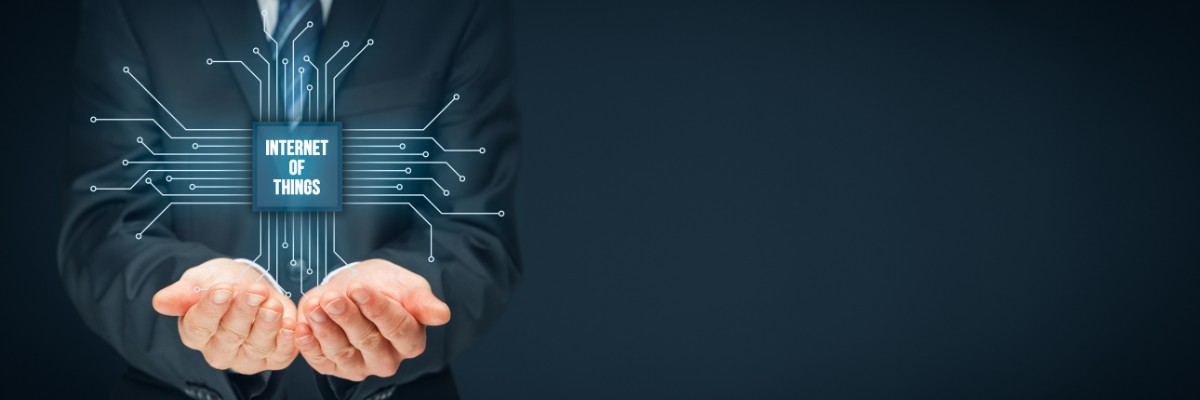IoT Applications in Business: Transforming Operations and Driving Innovation
The Internet of Things (IoT) is revolutionizing the way businesses operate. With the ability to connect physical devices to the internet, IoT enables real-time data collection, analysis, and communication. From manufacturing and logistics to retail and customer service, IoT applications in business are creating more efficient, intelligent, and scalable operations. In this article, we’ll explore the most impactful ways IoT is being used across industries and how businesses can benefit from adopting this transformative technology.
What is IoT in a Business Context?
IoT refers to the network of interconnected devices equipped with sensors, software, and other technologies that communicate with each other via the internet. In business, these devices collect and share data to automate processes, improve decision-making, and optimize resources.
Examples of IoT devices include smart thermostats, RFID tags, connected machines, wearable tech, and advanced security systems. When strategically deployed, these devices offer businesses valuable insights and operational agility.
Top IoT Applications in Business
1. Supply Chain and Inventory Management
IoT devices like RFID tags and GPS trackers allow businesses to monitor shipments, track inventory in real time, and reduce delays. Sensors can detect environmental conditions like temperature or humidity, ensuring sensitive goods such as food or pharmaceuticals are transported safely.
For retailers and warehouses, IoT automates restocking and prevents overstocking or stockouts. This results in more efficient operations and improved customer satisfaction.
2. Smart Office and Building Automation
Businesses are embracing smart office solutions to enhance comfort and reduce energy usage. IoT-enabled devices control lighting, HVAC systems, and security cameras automatically based on occupancy and schedules. This leads to significant cost savings and creates a more productive work environment.
Smart building systems also monitor air quality, noise levels, and energy consumption—providing insights that help facility managers optimize the workplace.
3. Predictive Maintenance
In manufacturing and industrial settings, IoT sensors monitor machinery and equipment to detect anomalies before they lead to breakdowns. This is known as predictive maintenance. By analyzing performance data and identifying patterns, businesses can schedule timely maintenance, reduce downtime, and extend the lifespan of equipment.
Companies like GE and Siemens have integrated predictive maintenance into their industrial IoT platforms, saving millions in maintenance costs and avoiding production disruptions.
4. Improved Customer Experience
IoT applications also enhance how businesses interact with customers. For instance, in retail, smart shelves can detect when a product is running low and alert staff. Beacons and mobile apps can personalize in-store experiences by offering promotions or product suggestions based on a shopper’s behavior and location.
In service industries, IoT devices can track customer usage of products and provide tailored recommendations or proactive support. This leads to higher satisfaction and brand loyalty.
5. Energy and Resource Management
Businesses use IoT to monitor and manage energy consumption across facilities. Smart meters and connected energy systems identify inefficiencies and enable better resource allocation. In large operations such as data centers, IoT helps optimize cooling and power usage to lower utility costs.
Farming operations have also adopted IoT sensors to monitor soil moisture, weather patterns, and irrigation systems—resulting in more sustainable agricultural practices.
Benefits of IoT in Business
1. Real-Time Insights
IoT provides businesses with up-to-the-minute data that enables faster and more informed decisions. Whether tracking fleet vehicles or monitoring manufacturing lines, real-time visibility improves responsiveness and efficiency.
2. Cost Reduction
Automated processes, predictive maintenance, and optimized energy use contribute to significant cost savings. Businesses can streamline operations and minimize human error by leveraging IoT automation.
3. Enhanced Productivity
By automating repetitive tasks and providing actionable insights, IoT frees up employee time for more strategic work. Teams can collaborate more effectively and focus on innovation rather than routine operations.
4. Competitive Advantage
Early adopters of IoT can gain a significant edge in their industry by offering better products, faster service, and smarter operations. As data becomes a key differentiator, IoT provides the tools needed to stay ahead.
Challenges of Implementing IoT in Business
1. Security Concerns
With more devices connected to the internet, businesses face increased risk of cyberattacks and data breaches. Ensuring strong encryption, secure authentication, and ongoing monitoring is essential for protecting IoT systems.
2. Integration Complexity
Integrating IoT devices with existing IT infrastructure can be complex. Businesses must ensure compatibility and establish effective data management strategies to maximize value from their IoT investments.
3. Data Overload
IoT generates massive volumes of data. Without the right analytics tools, businesses may struggle to extract meaningful insights. Investing in AI and machine learning technologies helps make sense of this data and drive results.
Future of IoT in Business
The future of IoT in business is bright. As 5G networks expand and edge computing becomes more accessible, IoT devices will offer even faster communication and improved capabilities. This will unlock new possibilities in autonomous vehicles, remote healthcare, smart cities, and more.
Additionally, as artificial intelligence becomes more integrated with IoT, businesses will be able to predict trends, automate decision-making, and uncover opportunities previously hidden in the data.
Conclusion
IoT applications in business are reshaping industries and unlocking new efficiencies, revenue streams, and customer experiences. From manufacturing and logistics to retail and remote work, IoT delivers actionable insights and automation that drive growth and innovation. As adoption continues to grow, companies that embrace IoT today will be better equipped to compete in the data-driven world of tomorrow.




